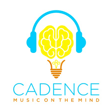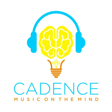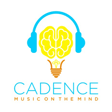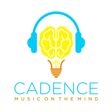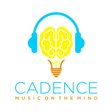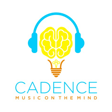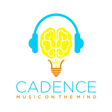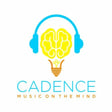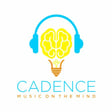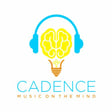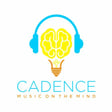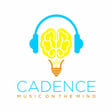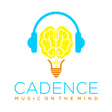Become a Creator today!Start creating today - Share your story with the world!
Start for free
00:00:00
00:00:01

S03 Episode 01: The Music of Politics
Transcript
Introduction to Music's Influence
00:00:06
Speaker
Hey, welcome back to Cadence, the podcast where we explore what music can tell us about the mind. In this season, we're going to figure out how music influences our behavior, the many different ways in which it can touch us and motivate us and move us
Is Music Inherently Political?
00:00:20
Speaker
to act. And we're going to start with an episode on music and politics.
00:00:35
Speaker
Is music inherently political? Probably not, actually. There's so much music that isn't, and a lot of musicians strive to not be political. I could see where a case could be made that music is political, but it would be a case that then would encompass all communication.
00:00:55
Speaker
That was John Roderick of the Seattle indie rock band The Long Winters, and I have to agree. There's nothing intrinsically political about music, but music and politics are nonetheless deeply intertwined.
Music's Role in Political Campaigns
00:01:07
Speaker
That's because one of the ways in which we use music is for social bonding, and politics is how we divide ourselves in terms of our political beliefs into groups.
00:01:18
Speaker
You've got protest music, campaign songs, national anthems, Bill Clinton saxophone, Kanye West is running for president, Neil Young is suing the Donald Trump campaign, Kamala Harris likes salt and pepper. And right now, with the internet and music streaming and social media, music arguably plays a bigger role in American politics than ever before.
00:01:39
Speaker
You know, music enhances a lot of the rituals that surround presidential campaigns. That's Dana Gorzalani-Mostak, assistant professor of music at Georgia College.
00:01:51
Speaker
I think when we talk about music's power to influence people, I think it's maybe a mistake to reduce music's effectiveness down to whether or not it influences people to vote. I mean, I think there's other ways of being political. There's other ways of engaging in the public sphere and enacting social change. And I think music is often involved in those practices. Music's power to influence isn't limited to politics.
00:02:19
Speaker
But its use there is a perfect case in point, especially when we're talking about how music influences us.
Enhancing Communication Through Music
00:02:26
Speaker
And politics, after all, is fundamentally about influencing others around you to agree with you so that you can bond together and make decisions that benefit everyone. At least that's what we hope. If you think about powerful political speeches from our history, many have a clear rhythm and cadence that draws you much more deeply into their words. It's another way of using music to make a point.
00:02:49
Speaker
The rise from the dark and desolate valley of segregation to the sunlit path of racial justice. Now is the time. We shall fight on the beaches. We shall fight on the landing grounds. We shall fight in the fields and in the streets.
00:03:06
Speaker
Each new hour holds new chances for new beginnings. Do not be wedded forever to fear, yoked eternally to brutishness. The horizon leans forward, offering you space to place new steps of change.
00:03:22
Speaker
You can read a poem in under a minute that communicates all of what a novel communicates, but in ways that, you know, that light up your brain. And what a song does is it's even a further distillation of the words, but then backed up with this incalculable and unquantifiable power of notes and rhythm.
00:03:51
Speaker
The Hal Blaine drum part in God Only Knows by The Beach Boys, when he does that on the snare drum,
00:04:03
Speaker
He puts the accent on those snare hits in ways that are just like infinitely subtle. And that little drum break moves me utterly.
Historical Use of Campaign Music
00:04:15
Speaker
And so the meaning of the song, which is lyrically very simple, and structurally the song is very simple, but just this little drum part.
00:04:27
Speaker
amplifies the meaning of it and gives it, at least for me, this emotional significance. The drums propel that message. Here's Broadway performer Josh Daniel. It just gives you hope in a way that nothing else really can. I feel like music is the closest thing we have to magic. And I know that I'm saying that to a neuroscientist who's going to be like, well, actually, it's scientific and not magical.
00:04:55
Speaker
It's not magical, but it's nonetheless incredible. Music's ability to influence your brain and your behavior. Josh even spent some time as a speechwriter for political candidates, and in his work, he used his musical background to craft brands.
00:05:10
Speaker
I've been very lucky to be the voice online of two democratic women. And when I think about how do I write as them, I always think about what is, you know, what musically, what am I hearing musically, you know? And I always had to think, you know, especially when you're entering, you know, someone else's voice, like, how do I, how does this text sing like them? And how does this political message sing?
00:05:34
Speaker
so that it hits the reader in a way that it hits them emotionally. It doesn't feel quite as, you know, clinical as like some sort of policy wonky things can feel. And thinking about even just in my own activism life, how do I communicate with people who might benefit from connection that is more legato or more marcato or more staccato or whatever? And how musically does the activism manifest itself? I know that sounds like woo woo.
00:06:01
Speaker
But like, I really do kind of believe it. And using music to influence American politics is absolutely nothing new. One of the earliest campaigns to really make use of a lot of music was that of William Henry Harrison in 1840.
00:06:15
Speaker
That's sort of an important marker in campaign history because it's really the first campaign where you had widespread popular participation in campaigning. And there was a lot of talk during that time about what a large role singing and music played in his campaign. I mean, sort of the tune everybody knows is this one, Tippecanoe and Tyler too.
00:06:41
Speaker
And the song has basically this narrative that paints William Henry Harrison as this man of the people who lives in a log cabin and drinks cider
00:06:52
Speaker
And then it sort of paints his opponent Martin Van Buren as kind of this, I don't know, out of touch aristocrat. Now, there's something that's maybe a little bit false about that because William Henry Harrison actually was a wealthy man. But I think the campaign to sort of paint him as being a man of the people was very much established through music and singing.
00:07:14
Speaker
Maybe it worked. Harrison won the election and was elected president. A few decades later, popular music was starting to be incorporated into elections. When music is used in politics today, it's often piped into rallies or in commercials, and it's often performances by artists.
00:07:30
Speaker
not large crowds singing the songs themselves. That's a trend that parallels the decline of the amateur musician, with streaming music at her fingertips were less likely to participate in music making, though hopefully that trend is beginning to change. But that wasn't always the case, especially when it comes to music at political events.
00:07:49
Speaker
Your typical campaign song from roughly the 1840s to the 1970s was what you call a parody. So basically, someone who decided they wanted to write a text and homage to a candidate would take a tune that everybody already knew, like Yankee Doodle, Alden Sein, Old Dan Tucker, and then they would write a new candidate-specific text that would be set to that tune.
00:08:14
Speaker
And typically at campaign events they would pass out these little booklets called songsters and they would basically just include the texts and then they would include the name of the song that should go with
Choosing Campaign Music Today
00:08:24
Speaker
it. And that was typically how you would have music at events is you'd have people having essentially like these singalongs with these songs about candidates.
00:08:33
Speaker
Nowadays, music is often more of a backseat driver than the main event. And as John Roderick says, it's a hard task to find the right music to prop up a campaign. The problem of picking music for campaigns is it's basically like sports stadium music.
00:08:50
Speaker
It can't be too complicated. It can't be too nuanced. It's just there to jazz people up. It's the music that you play before a boxing match. So when I see a political campaign use a song that has any resonance with the themes of the campaign, I'm always shocked. And then I always instantly imagine the young staffer
00:09:19
Speaker
who's on the campaign, who's got an iPod full of tunes, and who slipped it in, you know, and slipped it past people that are like, and just, you know, hey, the kids are gonna love this, or it's Fleetwood Mac, and then there actually is resonance. But I think that's the rare occasion.
00:09:41
Speaker
But music can help us form communities. That's arguably exactly what it's for in at least one account of how music evolved. And Andy Bernstein, executive director of the voter registration nonprofit Headcount, which has worked with musicians like Ariana Grande, Neil Young, and Jay-Z, seems to agree.
00:09:58
Speaker
So many people feel disconnected from politics and so many people feel that leaders don't represent them. And we live in a country that has some of the lowest voting rates of any Western democracy. So when we can infuse a culture of civic participation in music communities,
Music's Impact on Identity and Participation
00:10:17
Speaker
when we can encourage musicians to be leaders in this regard and set the tone culturally, kind of establish the zeitgeist within their own communities that voting is important and an expectation, well, that's when we can start to move the needle.
00:10:38
Speaker
When I wrote a book about fish, the first few volumes that my friends and I wrote, we basically Xerox copied, for the most part, and sold in parking lots. So we had this, from a young age, this sense of the grassroots communication networks that exist very naturally in that sphere of music.
00:11:00
Speaker
But then you also look beyond the community and you look at the people on stage and they're the most natural leaders. Just physically, they're literally standing in front of people who listen to their every word and have this emotional, almost psychic connection with the artist they love. So you take all those ingredients,
00:11:21
Speaker
And it's just really natural for organizing and for moving people. And I don't think there's anything magical to it. I don't think there is anything kind of underlying the surface that isn't obvious. I think that music moves people.
00:11:44
Speaker
It will come as no surprise that while today's campaign songs are perhaps less obvious in their motives when compared to Tip Kanoo and Tyler, too, they're still used as a way to communicate a lot more than just hype around voting.
00:11:57
Speaker
One of the instances that people often refer to is Bill Clinton in 1992. One of the songs he used quite prominently in his campaign was Don't Stop, which was a song that was put out by the band Fleetwood Mac in 1977. And although this is the one people remember, he actually used a much larger playlist that included
00:12:18
Speaker
basically R&B pop and classic rock oldies, so primarily music from the 1960s and the 1970s. And I think this was an effective strategy for him for two reasons. One, in this period in the 90s, there was this huge explosion of
00:12:35
Speaker
sort of using nostalgia in advertising at the time. And, you know, I think part of Bill Clinton's sort of narrative as a candidate was sort of framing him as a poster child of the 1960s. So in a lot of ways, his choice of music very much tied into these narratives. When it works, it's a way to help voters form a deeper bond with a candidate through their musical taste. What kind of music you like says something about the kind of person you are.
00:13:02
Speaker
In fact, we actually often find our own identities by finding music that we love in our teenage years that speaks to us. And then we take on the identity of the people who are fans of that particular group. That's one of the reasons music is such powerful social glue. We know that it affects levels of the attachment hormone oxytocin, that it gives us pleasure, that it gives us endorphin rushes, that it is deeply tied to our motivated behaviors.
00:13:29
Speaker
behaviors that we do to decrease a particular drive, whether it be to reproduce or to feel safe or eat or drink. It pushes us to do things we wouldn't necessarily do without it. What you care about, what your values are, these are tied to the kind of music you identify with. And finding out who you are can be something that you do through the music that you discover, especially in your teenage years. Obama is an example of doing this well.
00:13:55
Speaker
I've had Paul McCartney singing Michelle to Michelle, and Stevie singing Happy Birthday. We've had Buddy Guy and Mick Jagger getting me to sing Sweet Home Chicago one night, a little off key.
00:14:14
Speaker
and a lot of different interviews talked quite a bit about his musical tastes. So when you went to a rally and you heard, you know, R&B and soul music playing there, you really believe that it's not just sort of music he is using to pander to a certain crowd. It's a music that you truly believe is reflective of who he is and what he stands for. But when it doesn't work, it can be perceived as inauthentic and have the opposite effect. So to kind of give you an example of a strategy that maybe didn't quite work,
00:14:42
Speaker
would be Hillary Clinton in 2016. She chose to use the music of a lot of younger artists at her event. She even created several Spotify playlists and one of them included artists like Demi Lovato, Selena Gomez, Ariana Grande. And I think, you know, she chose this music to make herself appear, you know, more hip, more fresh, more young. And, you know, not to mention the fact that a lot of this music has these sort of subtle feminist friendly messages as well.
00:15:10
Speaker
But at the same time, it doesn't speak in a language that might alienate voters. But this strategy really was met with criticism because although this music certainly reflected the tastes and interests of the demographic that she was trying to court, nobody really would believe that Hillary Clinton sits at home with Bill and the grandkids and is rocking out to Jennifer Lopez and Selena Gomez. I mean, it's just not how we imagine Hillary Clinton.
00:15:37
Speaker
What you get with these playlists that are meant to communicate that the person that made the playlist is up to date and has a diverse kind of musical vocabulary, it's often even less about the music than it is about where the music lands culturally. Because music is a language and different songs are different dialects, it's kind of a way of trying to be multilingual.
00:16:06
Speaker
or to communicate in a multilingual way. But the songs play, I think, often a secondary role in that. You know, it's all contrived to a certain extent. I think we acknowledge that. But at the same time, I think we want to believe that the candidates' musical tastes or the playlists that they put out can serve as, I don't know, some kind of divining rod of sorts that gives us some insight into their authentic selves.
00:16:29
Speaker
We're a tribal species and it's easy to use music to identify other members of our tribe.
Authenticity in Musical Choices
00:16:35
Speaker
Music, after all, isn't created in a vacuum. In order for music to be music, it needs to be heard by a brain and turned into music. It's written and performed by people with existing viewpoints and opinions. And then how we interpret that sound as music is also colored by our own viewpoints and opinions.
00:16:53
Speaker
The thing about popular music is that it goes out and resonates within the culture, often in ways that aren't necessarily in the music. A song has more than one message, and the intent of the songwriter often doesn't end up mattering in terms of where the song lands culturally, what it means to people.
00:17:20
Speaker
But also, of course, music is multi-layered. You can have a song that is all about someone's parent dying, but the drum beat is so killer that it goes out into the world, meaning something completely other to most people.
00:17:43
Speaker
So when someone chooses a song to associate with a campaign, it could be for a lot of different reasons. It could be because the person who wrote it is important to their constituency. Or it could be because the lyrics speak to deep truths important to their campaign. Or it could be for other reasons.
00:17:59
Speaker
Trump is an example of someone I think they pick music based on the title of the song. I mean, it's the classic born in the USA problem of people failing to understand that that's an anti-war, you know, it's a song that's critical of Vietnam and the, you know, and the experience of Vietnam veterans.
00:18:19
Speaker
But during the Reagan administration, it was rolled out all the time as a patriotic song and a jingoistic one. And Trump operates at that level, except even with less context or subtext. All of his songs are just like, you know, we are the champions, basically. He's just picking stuff that makes people feel strong and cool or whatever. But, you know, absolutely skin deep.
00:18:55
Speaker
One song that Trump used was Eye of the Tiger. And this is, you know, a song that's associated with Sylvester Stallone and the Rocky films, of course. And if you think about it, Stallone is, you know, he's an American, a filmic American hero, if you will. And he's also a card carrying Republican.
00:19:11
Speaker
So there's certainly that association with grit and perseverance in those films. But if you think about it from kind of the opening guitar riff of that song, there's something distinctly masculine and aggressive and unrelenting in the music, even before the words come in.
00:19:30
Speaker
And if you think about Trump's own brand, it's all about sort of defiance in the face of adversity, if you will. So you see, you know, this persona that he's establishing for himself, you see that reflected in some of his musical choices. You know, a lot of the other music that he used at events, you know, it's music that I would it's hard rock. It's music that might be considered aggressive.
Musicians and Politics
00:19:51
Speaker
I mean, he used the Rolling Stones. Let's spend the night together. You can't always get what you want.
00:19:55
Speaker
He used Twisted Sister, we're not going to take it. So this is all music that projects a certain brand of white masculinity that Trump is trying to project onto himself. But I think in looking at his playlist more broadly, I do see a pattern of sorts. Trump frequently used the music of artists whose ideological stances were
00:20:17
Speaker
opposition to his own and as you know many of them protested his use of their music but he also selected songs with lyrical contents that you really wouldn't think were suitable for campaigns i'm gonna use the rolling stones brown sugar and let's spend the night together for example this is not
00:20:34
Speaker
typically what you would hear at a campaign rally to pump you up. But I think I could also say that with his persistent usage of artists' music, and many of these artists spoke out against his usage, in a sense he's kind of conveying a sense of ownership over their creative work, which essentially he's appropriating to meet his own political goals.
00:20:55
Speaker
And I think in using music with objectionable lyrics, he's essentially saying that he does not need to play by the rules of the game and he doesn't need to adhere to the rules of propriety. He also said on several occasions that he chooses his own music for events. So in a sense, he's selecting music that fires him up. He's not pandering to what the crowds want to hear.
00:21:18
Speaker
There's also the fact that musicians are inherently people with something to say. After all, they wouldn't be making music if they didn't have something to say. Sometimes they say it with words, sometimes not. But performing or writing music is an expressive, creative act. It adds something to the universe that wasn't exactly there before, and any musician has this deep need to say something.
00:21:41
Speaker
In my own musical life, I actually find that if too much time goes by where I'm not making music, I feel muted or shut down or as if there's some part of me that is just wanting to get out and trapped inside. Which is why it's no surprise that musicians often find themselves involved with something like politics. Former Book of Mormon cast member Josh Daniel is an example of that.
00:22:04
Speaker
I loved in my activism journey, noticing how intrinsically linked my life as a musician is to how I view activism. And I think all the time, if thinking about that community, I always say like, you know, activism in community is a stagger breath. You know, like it's like when you're in choir and, you know, you're holding this note for forever and it's like, Oh God, I need to, I need a minute. You know what I mean? But I know that the person next to me is going to hold the note for me while I take my breath. And then I'm going to do the same for them.
00:22:33
Speaker
And I think that it helps me when I'm like, oh, God, I'm taking a breath. You know what I mean? Like, be like, no, like someone else is holding this note. And I think the job of an organizer is almost to.
00:22:43
Speaker
organize yourself out of a job because you're like a social arsonist lit fire to like all these people who are now on fire, you know, in the same way that you are. So that the work and the note if we're sticking with that analogy out lasts you. Josh Daniel was a swing for the Book of Mormon touring company, which meant that essentially he had to be prepared to play any role on that stage.
00:23:04
Speaker
my boyfriend asked me the other day, you know, what I thought the difference between an activist and an organizer was. And when do I feel like I'm what? And I was like, you know, my answer was like, oddly musical. I was like, you know, when I am an activist, I push. And when I'm an organizer, I pull. And there's something about the, like, even think about the musically, like, you know, the push and pull of music and, you know, when is there a ron tondo? When is there, you know, and, you know, crescendo? When are, you know, when does the music move and how that affects activism, I think is really,
00:23:33
Speaker
inherently musical in a way that I think that we don't think about a lot in activism because it all feels so, it can feel really harsh and feel really big and loud and bombastic a lot, but I think that part of my activism journey has been realizing and reminding folks that we need the dulcet tones too in this, you know what I mean, and that it all sort of becomes a part of this musical patchwork that makes activism activism and organizing organizing.
00:23:56
Speaker
Although this election year is like no other, if you want to learn more about how music was used in campaigns, check out this database that Dana Gorzalani-Mostak created. The Tracks on the Trail website, and this is a website that tracks and analyzes the campaign soundscape, and I wanted to create the website because I thought it would be really neat to create a central hub
00:24:15
Speaker
where interested parties could go and learn about the role sound plays in building the identity of presidential candidates. I mean, if you think about it, especially if you followed election 2016, you know, there's a lot of chatter online about the music candidates use at their rallies. People post candidate inspired music videos and songs on YouTube and Twitter and Facebook.
00:24:37
Speaker
You know, you have PACs organizing these large fundraising concerts to support candidates. I mean, almost every advertisement that a candidate puts out, whether on television or online, you know, all these advertisements include music as well. No matter your race, your ethnicity, no matter your gender identity, your sexual orientation, no matter your faith, unites America where their ancestors were native to these shores, where they were brought here forcibly and enslaved. Starting right here and right now.
00:25:07
Speaker
From this day forward, a new vision will govern our land. It's going to be only America First.
00:25:18
Speaker
Regardless of political goals, music is undeniably a connector of people. Andy Bernstein and Headcount want to use it exactly for that reason, a way to, at the very least, motivate people to vote. If your hero is asking you to do something, it's a lot harder to say no. And when that ask is a vote, that seems like a no-brainer.
00:25:37
Speaker
this idea of music as a place of change, music as a place of organizing, music as a place of community. These are universal things that will not change. These things predate my life and they will live on after my life.
00:25:53
Speaker
When we look at an artist like an Ariana Grande or a Billie Eilish, who are so important to us now, they are absolute cultural leaders. They are not just kind of emanating culture, but they're taking it in. And they have a, musicians I think almost have a spidey sense of what is culturally relevant, what is now. And when we started, do was not social media. This did not exist 15 years ago.
00:26:20
Speaker
But the same kinds of communication existed on message boards and things like that. It was fervent, and it was viral, and it was shared, and it was all of these things that today are everywhere. They existed in music even before all the tools were there to make it really easy.
Bridging Divides with Music
00:26:42
Speaker
One artist that we're working with now is Camila Cabello. Camila has 50 million Instagram fans. It's just mind-blowing. Some more people are following Camila Cabello on Instagram than are watching the World Series. Yet, there are many people who've never heard of Camila Cabello. We don't reach those people through Camila Cabello. We reach the 50 million people who follow her on Instagram.
00:27:10
Speaker
Since musicians can be so influential, why haven't we seen a musician president yet? Maybe it's because musicians speak from the heart, often not from the head, and political decisions, at least on the surface, are thought to be rational, deliberate choices, ones that rely heavily on the prefrontal cortex, which is the part of the brain that many musicians actually deactivate when they're creating new music. In fact, when we see the brains of musicians who are improvising, we see less activation in the prefrontal cortex.
00:27:39
Speaker
because they are paying more attention, more cognitive resources to the back of the brain, their senses, their feelings, what's going on around them, as opposed to driving brain activity with the prefrontal cortex and conscious deliberate thought.
00:27:52
Speaker
I found that whenever I tried to be political, to advocate or describe political conditions and really advocate, to take a stand, I felt very illegitimate speaking through music that way. And I'm a polemicist. I love to talk about politics, but I couldn't sing about it.
00:28:16
Speaker
How it is that that can be so true about me seems indicative of something about where politics live in one's heart and mind relative to, you know, where love does, for instance. Ultimately, as we try to move past our divisions, music can also be a way to understand things about other people that you might otherwise struggle with. That was the case for John Roderick.
00:28:42
Speaker
I went back to my high school reunion right before the election, the summer before the 2016 election. And my high school classmates know me as the most outspoken liberal to come out of East Anchorage High, class of 86.
00:28:59
Speaker
And this crowd, a group of them gathered around me and they were like, hey, liberal, you're about to have a rude awakening. And in August of 2016, I was pretty confident in our chances of getting Hillary Clinton elected.
00:29:19
Speaker
And I was like, Oh, am I going to have a, a wake up? And right up into the, to the election, I thought there was no chance. And when Trump won, it set me back in my chair so hard because I saw the prescience that they had, the understanding that there was an America that I did not appreciate. And what I know about these people gave me insight, which was that they think of themselves as the fun ones.
00:29:48
Speaker
they think of themselves as the partiers and the ones that have a sense of humor and the ones that are just you know that are having a good time in life and they like to get rowdy and they like to drive trucks and they like to just you know like they're the they're the fun ones and we're the drags
00:30:07
Speaker
Liberals are the boring ones, the ones that are upset all the time. But when they think about it, when they think about, you know, standing around the fire pit, they're the fun ones. And the whole business of like owning libs and calling libs snowflakes and all that. I mean, to us, that just seems so like sad and dumb, but they really believe it.
00:30:32
Speaker
And when they say make America great again, what they mean is like make America fun and lighthearted and what's the big deal? And so I'm a little bit racist. Who can, you know, like, why are you so upset? I was just joking when I called you that. Like all that mentality, you put you stitch it all together and it's actually a worldview. So in an attempt to not agree with these people, but at least understand them, he wrote a song about it.
Conclusion and Credits
00:31:02
Speaker
Well I watch the news and I know what's what I go to rockin' worship and I pray And I see the whole world fallin' apart And I thank God I live in the USA Well I might not have a PhD
00:31:25
Speaker
But those so-called elites aren't so smart It's better do what you want Lack of morality that's tearing our country apart
00:31:38
Speaker
Well, I'm no gun nut, but I protect my family And I'm not racist, but my heritage makes me proud My wife's no feminist, but she knows how to treat a man And we want someone to make America great again
00:32:02
Speaker
Thank you for listening to this first episode of Season 3 of Cadence, what music tells us about the mind. You can find us online at the ensembleproject.com slash cadence at facebook slash cadence podcast and on twitter at cadence podcast. You can also get in touch with us at cadencemind at gmail.com and you can support us at patreon.com slash cadence podcast or by telling your friends about this podcast and giving us good reviews on places where you get your podcasts.
00:32:31
Speaker
Cadence is produced by Adam Isaac and me with additional production help from Scott Lowry and Katie Lindhart. Cadence is also generally sponsored by the Germanicos Foundation. You can find me on Twitter at Andre Vess and if you want to hear more don't forget to subscribe.
